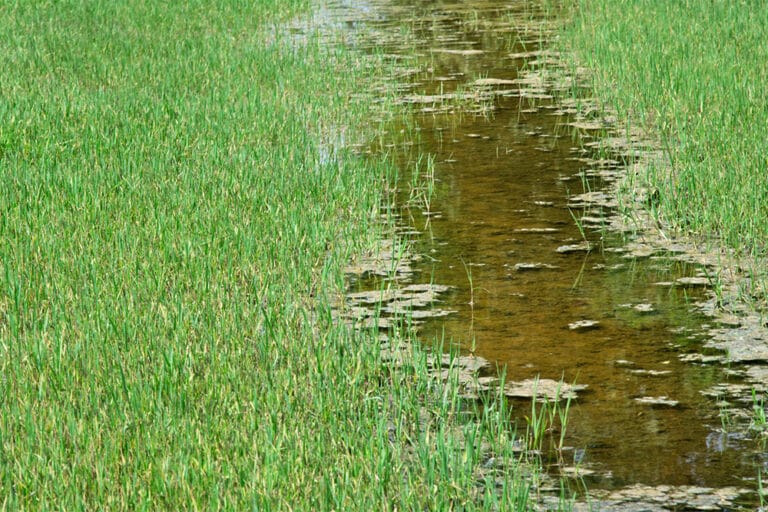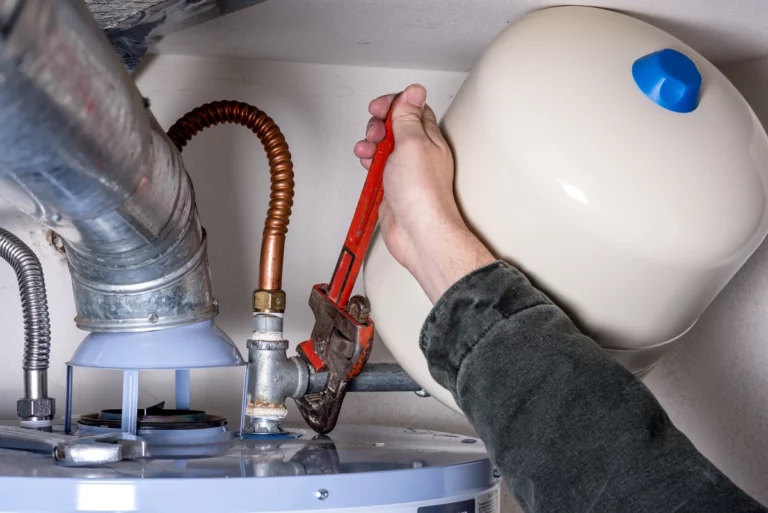Why does my drain keep clogging? This is one of the most common household problems that can cause significant headaches. From a buildup of hair and soap scum to food particles and grease, there are many reasons why your drain may become clogged. Learning how to unclog your own drain is a valuable skill to have, but is some cases you may want to have a plumber to unclog the drain for you.
In this article, we’ll explore 9 of the most common causes of clogged drains and provide some simple tips on preventing them. By taking a few simple precautions, you can keep your drains flowing smoothly and avoid the frustration of a clogged drain.
Causes of Clogged Drains
It can be easier to avoid blocked drains in the first place if you are aware of their causes. Here are the nine leading causes of clogged drains and how to prevent them:
1. Hair and Soap Buildup
Hair and soap are two of the most common culprits of bathroom drain clogs. As hair goes down the drain, it can get tangled up with soap and other substances, forming a sticky mass that can quickly build up and create a blockage.
Soap scum can also contribute to clogs by coating the inside of pipes and trapping the hair, skin cells, and other debris. It’s essential to be proactive in preventing these clogs from keeping your bathroom drains running smoothly.
To prevent hair and soap buildup, use a drain cover to catch hair before it goes down. You can also use a hair catcher in your shower or bathtub drain. Additionally, consider switching to a liquid soap that is less likely to leave soap scum buildup in your pipes.
2. Food Waste
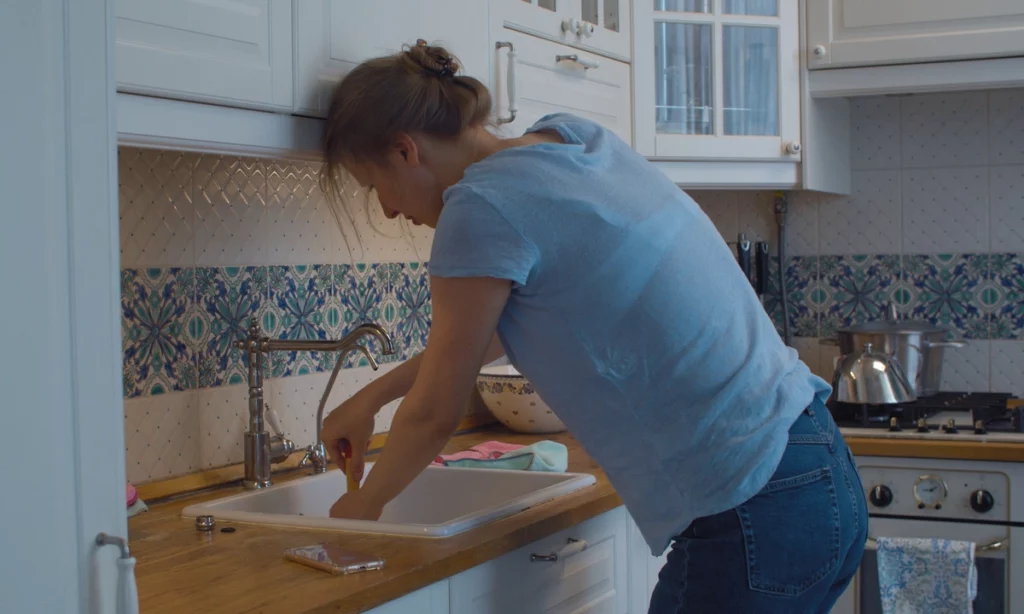
When you wash food waste down the drain line, it can easily clog kitchen sinks. Over time, food particles can build up in pipes, leading to blockages.
To prevent food waste from causing a massive clog, scrape food scraps into the trash can instead of rinsing them down the drain line. Use a filter in your sink to catch small particles that may escape your attention.
3. Grease, Fat, and Oil
When grease, fat, and oil are poured down the main drain, they can quickly stick to the inside lining of the pipes, forming a sticky and tough substance that can solidify and block water flow. This substance can build up over time, resulting in a severe clog that is challenging to clear.
To prevent grease, fat, and oil from causing clogs, never pour them down the drain. Instead, let them cool and solidify before throwing them away. Additionally, use paper towels to wipe out greasy or oily dishes before washing them.
4. Foreign Objects
Foreign objects, such as toys or jewelry, can accidentally be dropped down drains, causing blockages. These objects can become a blockage and a severe clog. When foreign objects get stuck in a drain, it can stop water from going down, which can be annoying. If this happens for too long, it can damage or break the pipe.
Be careful what you let near your drains to avoid blockages caused by foreign objects. Use drain covers or screens to catch anything that might accidentally fall in, and keep toys and other small items away from the kitchen and bathroom sinks.
If you accidentally drop something down the drain, avoid using the sink drain until a professional plumber has retrieved or removed the object.
5. Tree Roots
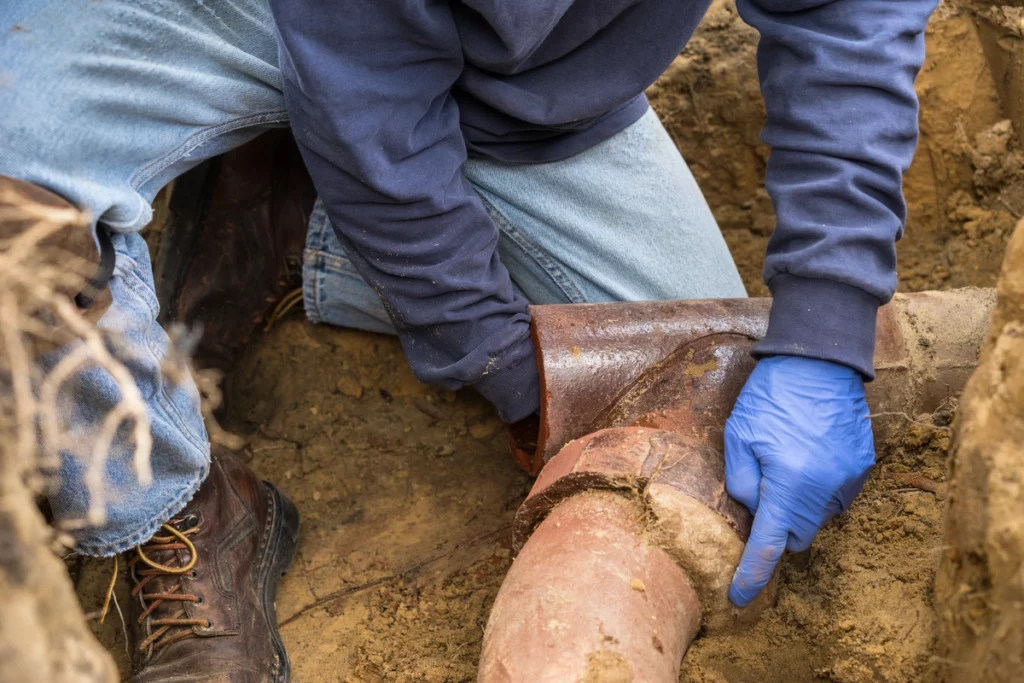
Underground pipes often get clogged due to invasive tree roots. A clogged sewer line with minor leaks or cracks is particularly vulnerable to tree root growth. When tree roots grow inside pipes, they can lead to a complete blockage or rupture.
To prevent tree roots from causing clogs, avoid planting trees or shrubs near underground pipes. Contact a qualified plumber if you think tree roots are causing a clog so they can use specialized tools to remove the roots and fix them without damaging the pipes.
6. Mineral Buildup
If your home has hard water, mineral deposits can gradually build up along the walls of your pipes, restricting water flow and causing clogs. Hard water is characterized by high levels of dissolved minerals like calcium and magnesium, which can settle out of the water and form a hard, scale-like buildup inside pipes.
To prevent mineral buildup, consider installing a water softener to reduce the hardness of your water. Mineral deposits and other blockages can be effectively removed by hydro jetting. Start by adding one gallon of hot water, then half a cup of baking soda, and wait a few minutes before adding one cup of vinegar and one cup of hot water.
7. Too Much Toilet Paper
Too much toilet paper can accumulate in pipes and cause blockages if not flushed properly. Blockages can be particularly troublesome when using toilet tissue paper with a patchwork pattern.
Use only the recommended amount of toilet paper and ensure it is flushed thoroughly to prevent buildup. Items, including wipes, feminine hygiene products, and dental floss, shouldn’t be flushed because they might clog pipes.
8. Broken or Damaged Drain Pipes
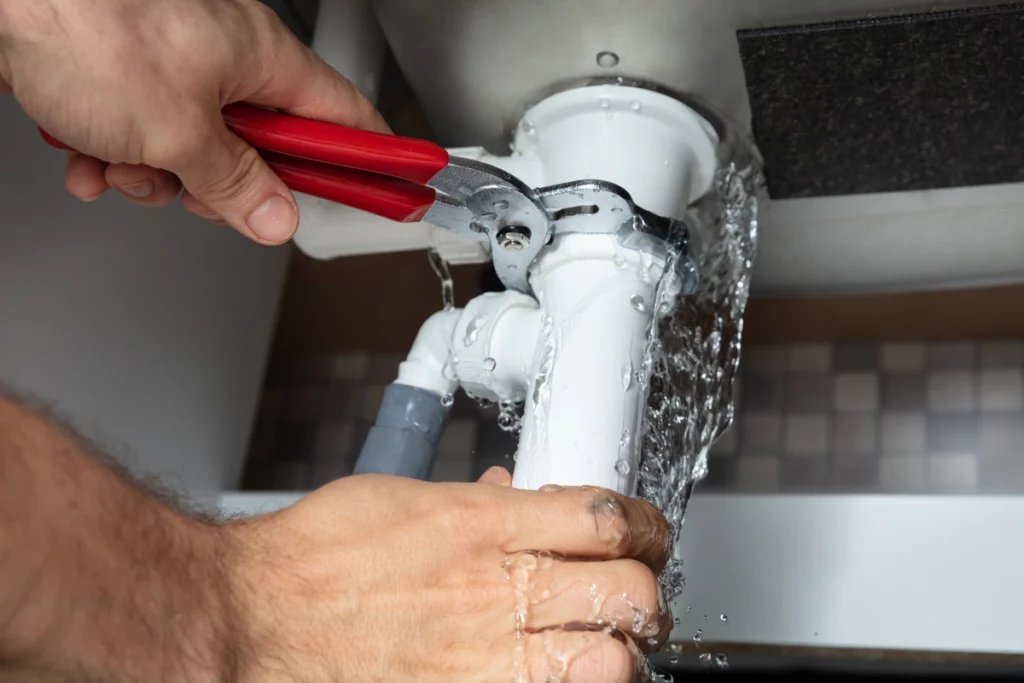
Broken or damaged drain pipes can cause clogs by allowing debris to accumulate in the damaged area. It can lead to severe clogs that may require professional attention.
If you have an older house, upgrading your central drain system may be the only viable solution. To prevent broken or clogged pipes, avoid pouring harsh chemicals down your drains, as these can corrode older pipes and cause them to deteriorate over time.
9. Cat Litter
Flushing cat litter down the toilet may major clog the pipes. Even trash labeled as flushable can be a problem because it can build up in pipes and result in clogs. Never flush kitty litter down the toilet to prevent clogs. Instead, throw it in the garbage.
By preventing these most common causes of clogged drains, you can avoid the hassle and expense of dealing with a clogged drain in the future.
Conclusion
Overall, clogged drains are a common issue for many households, which can often cause significant disruption. They can be prevented by taking proactive measures, allowing homeowners to avoid stress and keep their plumbing systems running efficiently.
Regularly scheduled maintenance with a professional plumber should provide significant peace of mind as it can help pinpoint potential issues before they become more significant problems.



